Illegal deforestation persists in Orangutan Capital of the World despite commitments to restore Rawa Singkil peatlands
A recent investigation by investigative outlet Repórter Brasil, produced in partnership with the Pulitzer Center’s Rainforest Investigations Network and published in Mongabay, has affirmed and expanded upon findings by Rainforest Action Network that the Chinese state owned Cofco corporation is continuing to drive deforestation despite high profile pledges not to do so. One of the cases profiled is Cofco’s connection to deforestation for palm oil in a protected area of tropical peat forests in Indonesia called the Rawa Singkil Wildlife Reserve.
Rampant deforestation continues in the Rawa Singkil Wildlife Reserve in Indonesia’s globally important Leuser Ecosystem months after major brands like Procter & Gamble and Cofco’s supplier — Wilmar International — were exposed for their connections to illegal palm oil plantations inside the protected area. The Rawa Singkil Wildlife Reserve is located in the southwest corner of the Leuser Ecosystem. Its ancient, deep, and carbon-rich peatlands store immense amounts of greenhouse gasses safely and naturally underground. The area has been called the ‘orangutan capital of the world’ because it is home to the densest populations of orangutans to be found anywhere.
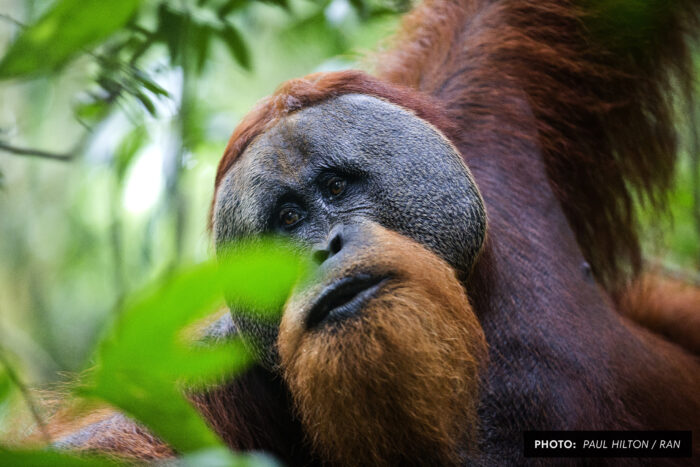
The deforestation crisis in Rawa Singkil Wildlife Reserve started to peak in 2022. Not only is the crisis driven by the demand for palm oil, it is a result of the lack of full traceability in the supply chains of Procter & Gamble, Mondelēz, Unilever and Nestlé — and the failure of these brands to enforce their ‘No Deforestation, No Peatland and No Exploitation’ policies with traders such as Wilmar, Golden Agri Resources, Musim Mas and Apical. Despite their role in the crisis, these brands and traders have failed to take meaningful actions to stop the destruction of this critical landscape. Cofco is the latest agribusiness trader to be exposed for its connection to the destruction of the orangutan capital of the world. To date Cofoc has failed to publicly respond to the Carbon Bomb Scandals and commit to invest in collective actions to monitor and protect the Rawa Singkil Wildlife Reserve from further destruction.
RAN’s extensive field investigations that were undertaken in 2022 found that a palm oil supplier’s plantation was established on lands that had illegally been cleared and burnt inside the boundary of the Rawa Singkil Wildlife Reserve. The images below show the destruction caused by the supplier — a local elite called Mr Mahmudin — during the establishment of his illegal plantation.
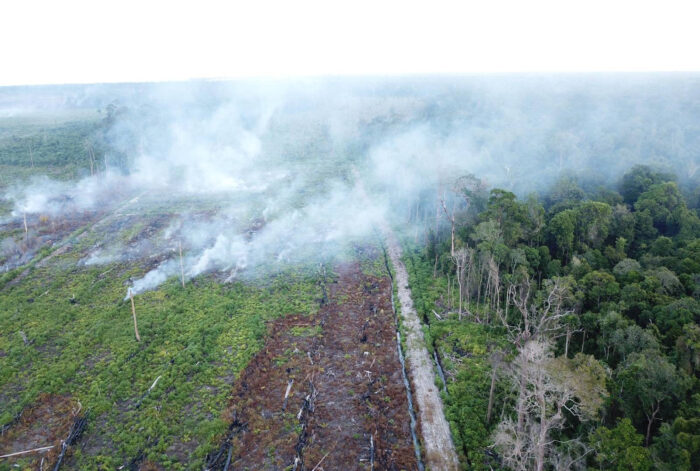
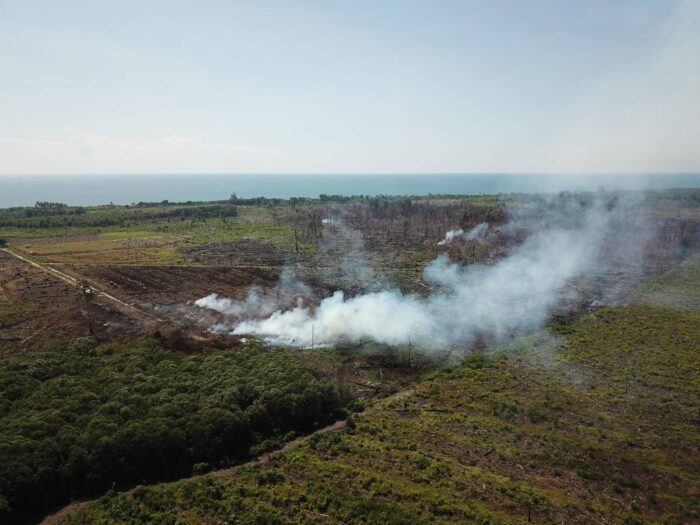
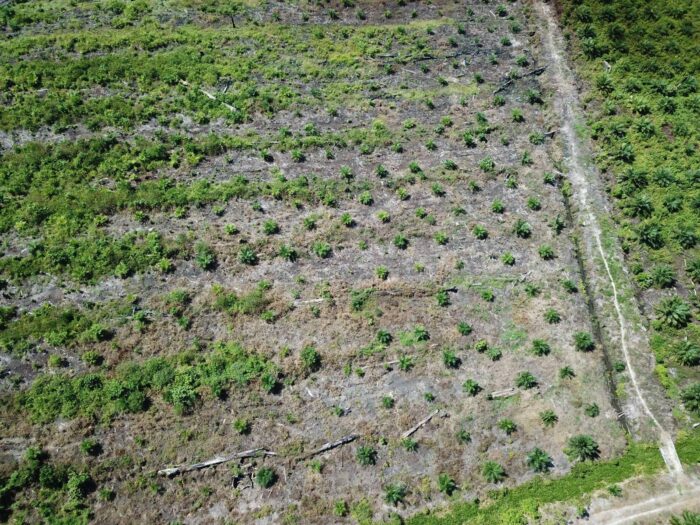
The maps below show the areas of peat forests that were cleared during 2017 and the areas of plantations that had been established between 2017 and 2022. In 2022, RAN gathered evidence showing that the palm oil grown illegally inside the Rawa Singkil Wildlife Reserve was being supplied into the supply chains of major traders including Wilmar International, Golden Agri Resources, Musim Mas and Apical. RAN’s Carbon Bomb Scandal report showed the palm oil produced on Mr Mahmudin’s illegal plantation was transported to local collection points and sold to two nearby palm oil mills — PT. Global Sawit Semesta and PT. Runding Putra Persada. PT. Global Sawit Semesta is listed as a supplier to Cofco in its 2022 supplier list. PT. Runding Putra Persada was listed as a supplier in Cofco’s 2021 supplier list. RAN also published additional evidence after the traders denied sourcing illegal palm oil from Mr Mahmudin. After undertaking their own field investigations, Wilmar, Golden Agri Resources and Musim Mas confirmed that RAN’s findings were accurate and that Mr Mahmudin had established illegal plantations inside the Rawa Singkil Wildlife Reserve, in addition to his plantations located outside the protected area.
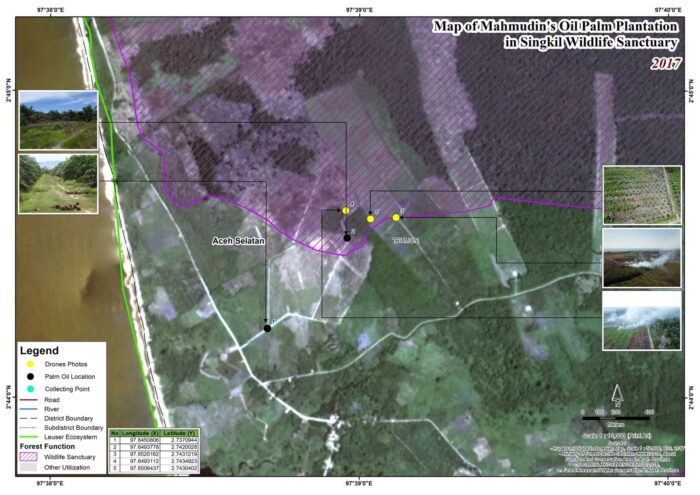
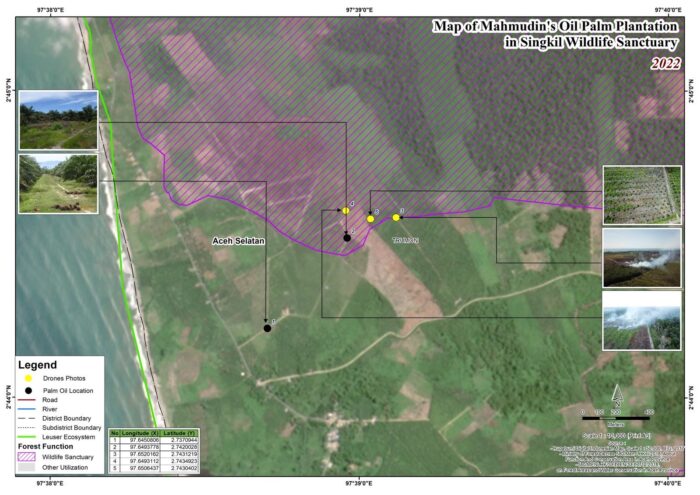
Today, RAN is releasing additional evidence implicating another mill called PT. Samudera Sawit Nabati in the Carbon Bomb Scandals. PT. Samudera Sawit Nabati was identified as a mill that was being supplied with palm oil from the same collection point located in the village called Le Meudama. PT. SSN was listed as a supplier to Cofco in its 2021 mill list. The image below shows the purchase receipt that was collected at the Le Meudama collection point which shows palm oil from the collection point was delivered to the PT. SSN mill by a broker named CV Mas.
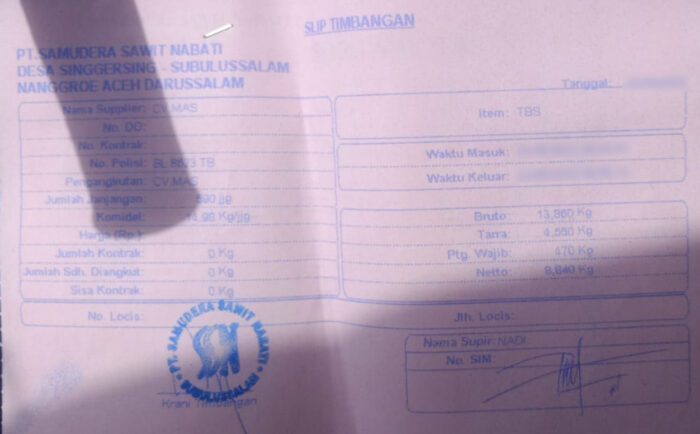
Mr Mahmudin’s illegal palm oil plantation continues to operate inside the protected reserve–despite commitments made by the traders supplying major brands to ensure illegally established oil palm plantations are returned to the authorities so they can be restored and managed as part of the Rawa Singkil Wildlife Reserve. A number of the traders exposed in the scandals committed to ensure four hectares of illegal palm oil plantations inside the reserve were released to the authorities ‘no later than the first semester of 2023’. This deadline has not been met. There is no evidence of land return in the form of a letter of handover and a receipt of the land release ––which was a requirement in the time-bound plan the traders agreed with their suppliers. There are growing concerns that the supplier Mr Mahmudin will not follow through on the commitments made to return the illegally established palm oil plantations to the authorities.
This is the latest example of the failure of traders and brands like Procter & Gamble to deliver time-bound action plans in their supply chains that address the ongoing connection to deforestation and new expansion of palm oil plantations into peatlands in the Rawa Singkil Wildlife Reserve and the Leuser Ecosystem.
With the impacts of the climate crisis accelerating across the world, the stakes for our collective future could not be higher. However this case shows once again that consumers simply can not trust the public pledges of major traders like Cofco and brands like Procter & Gamble, Mondelēz, Unilever and Nestlé to sell products that are truly free from deforestation, climate pollution, and the destruction of the Leuser Ecosystem. It is imperative that consumers continue to ramp up pressure on these influential corporations to follow through on their no deforestation commitments and do the work necessary to fully implement transparent, verified supply chains with immediate accountability for all suppliers who are found responsible for violations like those documented in these investigations.